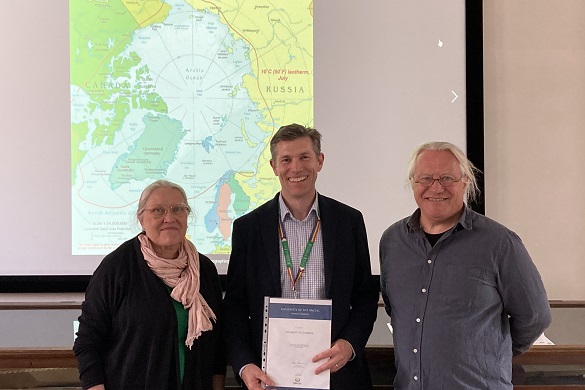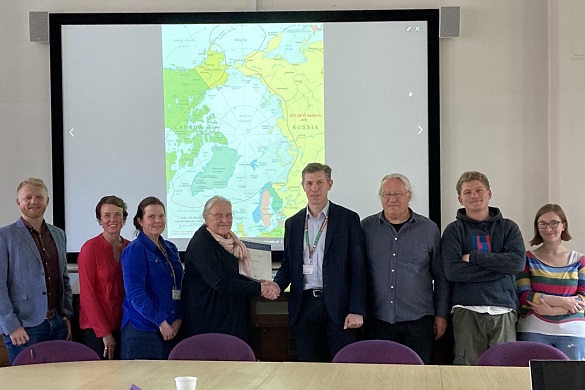University of Liverpool joins global Arctic network

The University of Liverpool has joined the University of the Arctic (UArctic), a global network of organisations focused on research in the rapidly changing natural and social environment of the Arctic.
The UArctic network was set up in 2001 to address local and global challenges of relevance to Arctic peoples and societies.
The consortium provides unique educational, research, and innovation opportunities through collaboration within a powerful network of almost 200 member institutions and organisations spanning 24 time zones in the eight Arctic countries and beyond.
Liverpool’s membership was proposed by Professor James Lea and confirmed after a presentation of our Arctic expertise by Professor Claire Mahaffey at the Arctic Congress 2024, a showcase of Arctic cooperation which took place in Bodø, Norway earlier this month.
The University has longstanding areas of Arctic research expertise including researchers working on locally and globally pressing research problems relating to changing ice masses in Greenland and Nunavut; the SEGUL group of ecologists advancing understanding of the behaviour and conservation of Arctic seabirds and wider food webs; and oceanographers transforming global understanding of the physical, biogeochemical and biological role of the polar oceans in the global climate system.
Last week, the University was delighted to welcome the President of UArctic, Lars Kullerud, and the Secretary General, Outi Snellman, to Liverpool.
The visit provided an opportunity to showcase the University’s Arctic strengths and discuss potential new opportunities for collaborative research and education.
Doug Mair, Professor of Glaciology and Dean of the School of Environmental Sciences, led the session which also included presentations by Dr Dave McNamara on geological research beneath the Arctic and North Atlantic Oceans, Dr Stephen Jay on marine spatial planning in the Arctic and Dr Rachel Jeffreys on detecting changes in Arctic ecosystems.
Professor Mair said: “We are delighted that the University has joined this global Arctic network and look forward to building our research and teaching collaborations with other members of the network.
“Our affiliation with the UArctic provides an outstanding opportunity for us to contribute and collaborate in areas where we have substantial existing Arctic research strengths which includes glaciology, sea bird ecology and oceanography.
"We hope that this will lead to new mutually beneficial opportunities that will help to simultaneously support Liverpool, the University of the Arctic and the wider community of affiliated member institutions.”
